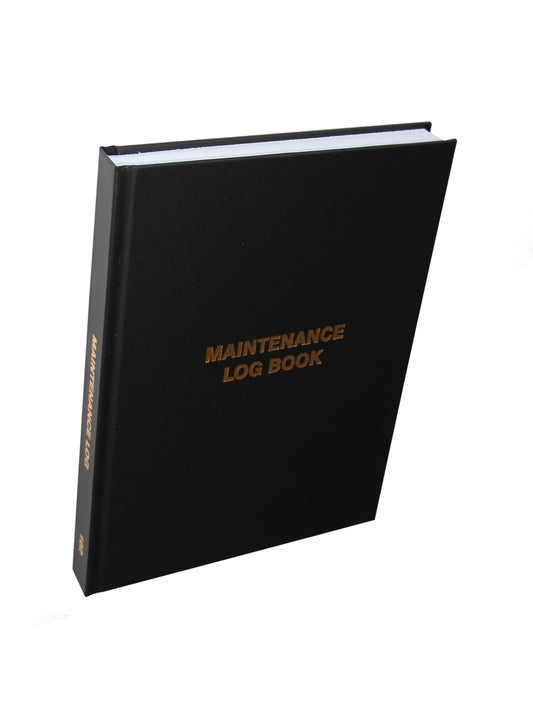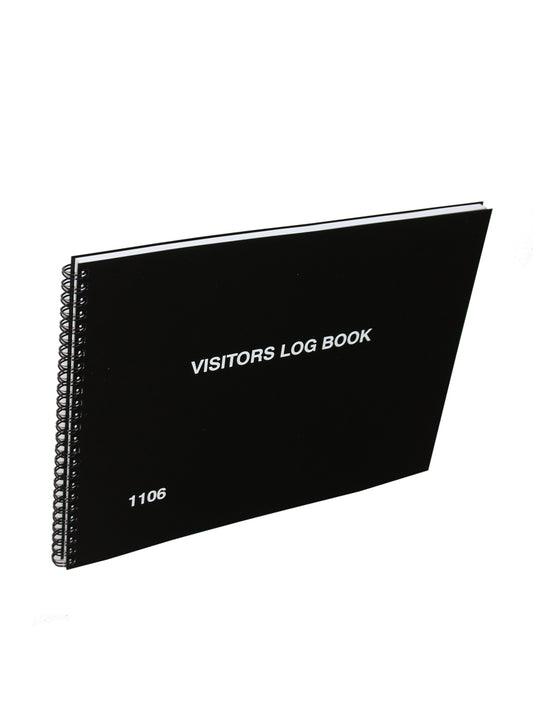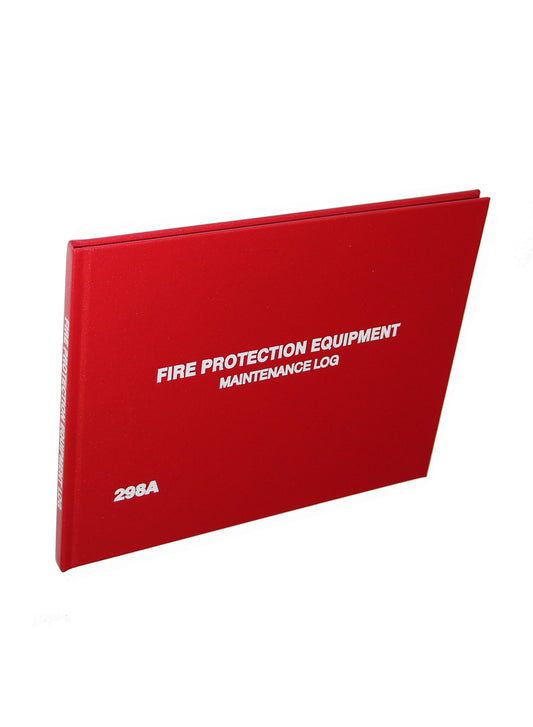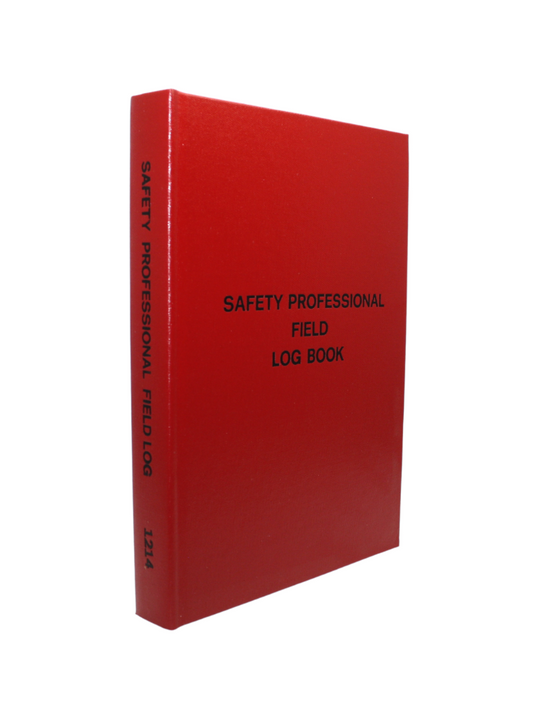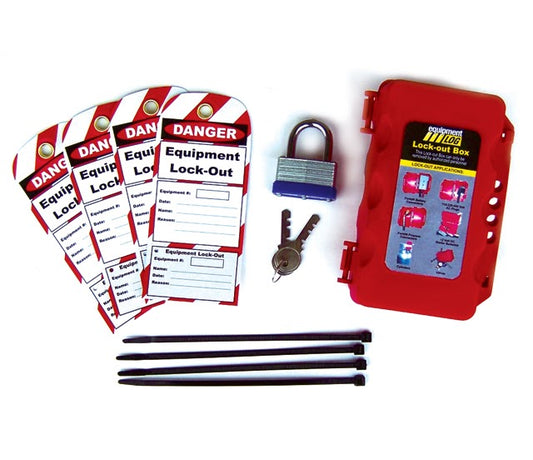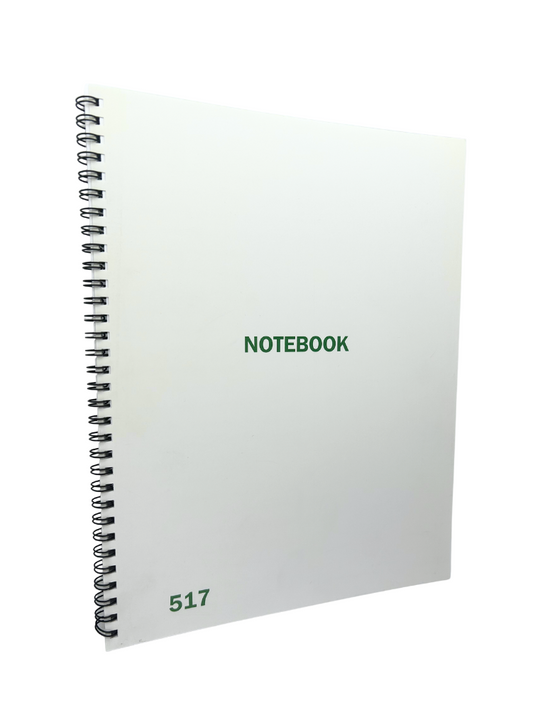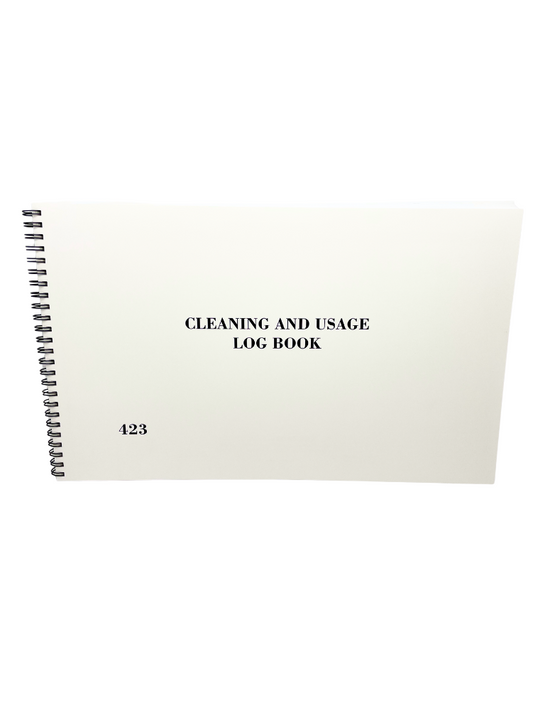-
General Maintenance Log Book #102
Regular price $50.00 USDRegular priceUnit price per -
Visitor Log Book #1106
Regular price $22.00 USDRegular priceUnit price per -
Fire Log Book #298A
Regular price $31.00 USDRegular priceUnit price per -
Safety Professional Field Log Book #1214
Regular price $60.00 USDRegular priceUnit price per -
Lost and Found Log Book #615
Regular price $25.00 USDRegular priceUnit price per -
Security Log Book #1105
Regular price $48.00 USDRegular priceUnit price per -
Fire Extinguisher Log Book #299
Regular price $26.00 USDRegular priceUnit price per -
Salt & Sanding Log Book #508
Regular price $40.00 USDRegular priceUnit price per -
Elevating Devices Maintenance Log Book (Bi-lingual) #495-8A
Regular price $37.00 USDRegular priceUnit price per -
Lock-Out Box
Regular price From $50.00 USDRegular priceUnit price per -
Notebook #517
Regular price $16.00 USDRegular priceUnit price per -
Cleaning and Usage Log Book #423
Regular price $35.00 USDRegular priceUnit price per
The Importance of Having Property Management Log Books
-
Maintenance Tracking
Log books allow property managers to track and record all maintenance activities, repairs, and inspections. This information helps in scheduling routine maintenance, identifying patterns of recurring issues, and ensuring that the property is well-maintained.
-
Documentation of Repairs and Upgrades
Log books provide a centralized location for documenting repairs, upgrades, and renovations. This documentation can be valuable for property owners, tenants, and future property managers, providing a history of the property's maintenance and improvements.
-
Communication and Coordination
Property management log books serve as a communication tool between property managers, maintenance staff, and other stakeholders. Notes on ongoing issues, completed tasks, and future plans help keep everyone involved on the same page.
-
Emergency Preparedness
In the event of an emergency or unforeseen situation, log books can contain critical information about the property's systems, emergency contacts, and procedures. This information can be crucial for quick decision-making and response during emergencies.
-
Compliance and Inspections
Property management log books assist in keeping track of compliance with regulations and scheduled inspections. This is important for ensuring that the property meets safety standards and that necessary inspections are conducted in a timely manner.
-
Security and Access Control
Information about security measures, access control systems, and any issues related to the property's safety can be documented in log books. This helps in maintaining a secure environment and addressing security concerns promptly.
-
Financial Record Keeping
While not a replacement for proper accounting systems, log books can provide a snapshot of financial transactions related to property management, including repair costs, maintenance expenses, and other financial activities.
-
Historical Reference
Log books serve as a historical reference for the property. Property managers can refer back to past entries to understand the property's maintenance history, track trends, and make informed decisions about future maintenance and improvements.
-
Legal Documentation
In the case of legal disputes or inquiries, having detailed records in property management log books can serve as valuable documentation. It provides evidence of compliance with regulations, maintenance efforts, and communication with tenants.
Not sure where to start?
We are here to help!



